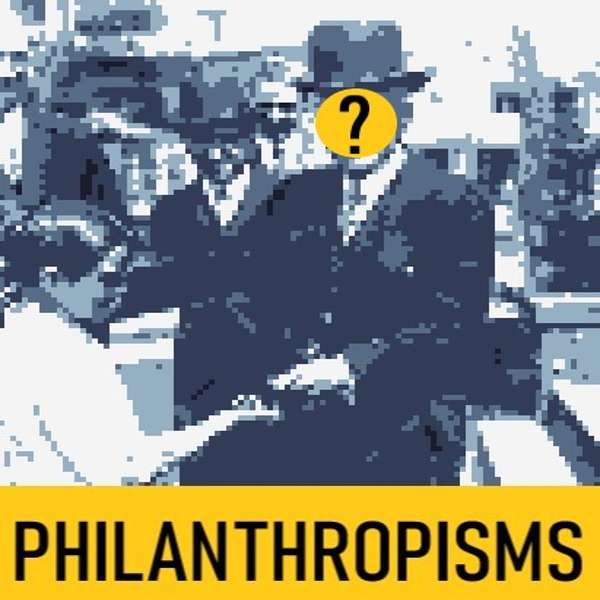
Philanthropisms
Philanthropisms is the podcast that puts philanthropy in context. Through conversations with expert guests and deep dives into topics, host Rhodri Davies explores giving throughout history, the key trends shaping generosity around the world today and what the future might hold for philanthropy. Contact: rhodri@whyphilanthropymatters.com.
Philanthropisms
Claire Dunning: Philanthropy, State & Society in the US
In this episode we talk to historian and political scientist Claire Dunning about her book Nonprofit Neighborhoods: An urban history of inequality and the American state, and her work on the history of radical philanthropy in Boston. Including:
-What are the “nonprofit neighborhoods” described in the book?
-Can participation in nonprofits become an alternative to involvement in the mainstream structures of civic participation, rather than a route into them? Does this undermine the Tocquevillean ideal of voluntary associations as “nurseries of democracy”?
-Is there any danger that in becoming partners with/agents for the state, nonprofits undermine their own ability to speak out? Is this due to active stipulation by state funders, or more through self-censorship by nonprofits?
-Have government efforts to involve nonprofits been driven in part by a desire to bypass the scepticism that might otherwise have been aimed at big government-delivered welfare and social reform programmes?
-To what extent was the involvement of nonprofits in programmes like the War on Poverty designed centrally (i.e. by Washington policymakers) and how much was a result of local implementation?
-What does the history of FUND (Fund for Urban Negro Development) and BUFF (Boston Black United Front Foundation) tell us about the challenges of trying to use philanthropy to address deep-seated issues of racial inequality?
-Is it ever possible to have truly “no strings attached “ giving, or are there always hidden strings?
-What can history tell us about the risk that foundations and other funders co-opt social movements by deliberately introducing grant stipulations etc aimed to direct the focus of the movement away from controversial areas or soften their tactics?
-What can the FUND/BUFF example tell us about current debates between donor-centric and community-centric fundraising?
-What value can a historical perspective can bring to philanthropists, funders and non-profit professionals?
-Are there limits to the utility of historical comparison in understanding the present? What should we take into account or be aware of?
-What is the value of historical edge cases?
Related Links:
- Claire's book Nonprofit Neighborhoods
- Claire's article in Nonprofit & Voluntary Sector Quarterly, " No Strings Attached: Philanthropy, Race, and Donor Control From Black Power to Black Lives Matter" (currently open access).
- Claire's 2018 paper "Outsourcing Government: Boston and the Rise of Public–Private Partnerships"
- Philanthropisms podcast with Emma Saunders-Hastings
- Philanthropisms podcast with Tyrone McKinley Freeman
- Philanthropisms podcast with Maribel Morey
- Why Philanthropy Matters guide to philanthropy & the welfare state